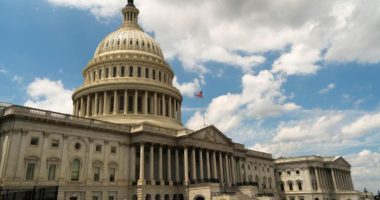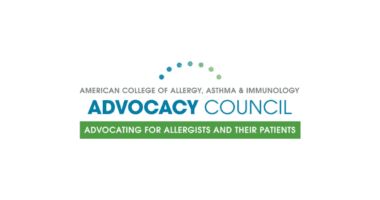Increasing federal funding for physician residency programs has long been a top advocacy priority for the College. Fortunately, this is also a bipartisan priority for Congress. The College had the opportunity to endorse two recent legislative proposals from Committees in both the House of Representatives and Senate that would significantly increase funding for the Teaching Health Centers Graduate Medical Education (THCGME) program, which facilitates primary care residency training in rural and underserved areas and helps increase the pipeline of potential future allergists. This program is different from the teaching hospital GME program.
Increasing funding for the THCGME program aligns with Congress’ bipartisan goal to help increase access to care in rural and underserved areas. It also aligns with the College’s advocacy goals because allergists begin their medical training in primary care. Increasing the number of primary care physicians in rural and underserved areas helps patients in these communities and helps increase the potential for future allergists.
Both bills, summarized below, provide similar increases to the THCGME program.
The Lower Costs, More Transparency (LCMT) Act, proposed by the House of Representatives, would reauthorize the THCGME program through FY 2030 at $1.7 billion. The yearly investments in the program would increase from $126.5 million in FY 2023 to $175 million in FY 2024, with incremental increases through FY 2028, when annual funding would be $300 million per year.
The Bipartisan Primary Care and Health Workforce (BPCHW) Act, introduced in the Senate, would reauthorize the THCGME program at $300 million per year through FY 2028, a $1.5 billion total investment. The Senate’s proposal would guarantee that the amount of funding per resident could not decrease from year to year, ensuring consistent support for graduate medical education programs.
For comparison, the THCGME program was funded at $126.5 million in FY 2023.
The College also endorsed H.R. 2761, the Specialty Physicians Advancing Rural Care (SPARC) Act. The bill proposes the establishment of loan repayment programs to incentivize specialists, including allergists, to practice in underserved communities. By offering financial incentives, the SPARC Act can help attract and retain specialists, addressing specific health care needs in underserved areas – a key priority of the College.
We’ve continued to advocate for increased investments in the Medicare Teaching Hospital GME program, emphasizing the need to prioritize new GME slots for domestic medical school graduates. Additionally, we’ve expressed support for substantial funding for the National Health Services Corps and programs that support training for allied health professionals – the health care professions allergy practices rely on such as nurses, and other non-physician practitioners.
Bipartisan support for both pieces of legislation demonstrates there is strong momentum behind funding the THCGME program. However, the path forward for each bill is uncertain. Both bills contain other, more controversial provisions, unrelated to THCGME funding. These controversial provisions have slowed progress on each bill. Despite challenges ahead for both pieces of legislation in each chamber, the College remains optimistic that by year’s end, the THCGME program will secure significant increases in investment, even if it is independent from these specific pieces of legislation.
The Advocacy Council will continue to voice its support for this important program, which mutually benefits both our profession and our patients.
The Advocacy Council – ADVOCATING FOR YOU AND YOUR PATIENTS.




